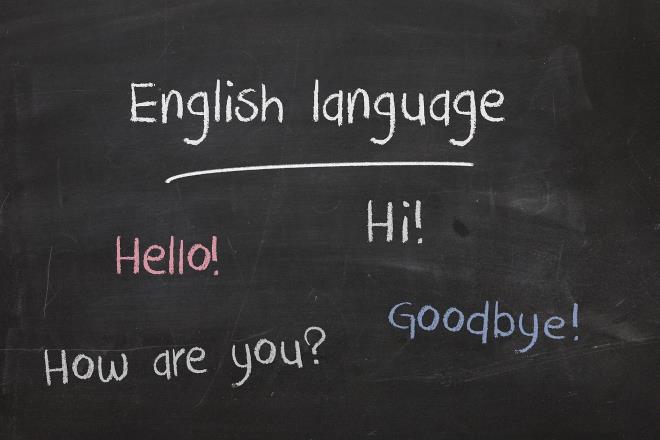English Proficiency in Aviation Training in the Netherlands
In the Netherlands, proficiency in English can significantly enhance career pathways in aviation. Many may not realize that speaking English is often a prerequisite for various roles in this expanding sector. As the aviation industry continues to grow, understanding the roles available and the conditions of work is crucial for those looking to enter this field.

The aviation sector in the Netherlands represents one of Europe’s most dynamic training environments, where English language skills form the backbone of professional competency. As international aviation standards mandate English as the universal language of flight operations, Dutch training institutions have developed specialized programs that integrate language proficiency with technical aviation knowledge.
Understanding Aviation Roles and Language Requirements in the Netherlands
Aviation careers in the Netherlands span multiple disciplines, each with specific English proficiency requirements. Pilots must achieve Level 4 English proficiency according to International Civil Aviation Organization (ICAO) standards, demonstrating operational, concrete, and work-related vocabulary usage. Air traffic controllers require even higher language competency, as they coordinate complex flight patterns and emergency situations through precise verbal communication.
Aircraft maintenance engineers need technical English skills to interpret maintenance manuals, safety bulletins, and regulatory documents that are predominantly published in English. Flight dispatchers and ground operations personnel must communicate effectively with international crews and coordinate with global aviation networks. Each role demands not just conversational English, but specialized aviation terminology and phraseology that ensures safety and operational efficiency.
The Growth of the Aviation Industry and Its Various Career Paths
The Dutch aviation industry has experienced remarkable expansion, driven by Amsterdam Schiphol’s position as a major European hub and the presence of airlines like KLM Royal Dutch Airlines. This growth has created diverse career opportunities spanning commercial aviation, cargo operations, general aviation, and aerospace manufacturing.
Career paths include airline transport pilots, commercial pilots, flight instructors, and specialized roles in helicopter operations. Technical careers encompass avionics technicians, aircraft inspectors, and aerospace engineers. Ground-based positions include flight dispatchers, airport operations coordinators, and aviation safety inspectors. The industry also offers opportunities in aviation management, airport administration, and regulatory compliance.
Each career trajectory requires specific training pathways, with English proficiency serving as a common denominator. Training institutions across the Netherlands have adapted their curricula to meet both European Aviation Safety Agency (EASA) standards and the linguistic demands of international aviation operations.
Essential Skills and Conditions for Aspiring Aviation Professionals
Successful aviation careers require a combination of technical competency, situational awareness, and communication skills. English proficiency forms the foundation, but aspiring professionals must also develop mathematical aptitude, spatial reasoning, and decision-making capabilities under pressure.
Physical and medical requirements vary by role, with pilots requiring Class 1 or Class 2 medical certificates depending on their intended career path. Air traffic controllers must pass stringent medical examinations and psychological assessments. All aviation professionals must maintain current certifications and undergo regular proficiency checks throughout their careers.
Educational prerequisites typically include secondary school completion with strong performance in mathematics and physics. Many training programs require entrance examinations that assess both academic knowledge and English language competency. Continuous learning remains essential, as aviation technology and regulations evolve constantly.
| Training Program | Institution | Duration | Cost Estimation |
|---|---|---|---|
| Integrated ATPL | CAE Oxford Aviation Academy | 18 months | €80,000-€120,000 |
| Modular PPL/CPL | Martinair Flight Academy | 12-24 months | €15,000-€45,000 |
| Air Traffic Control | LVNL Academy | 12-18 months | €25,000-€35,000 |
| Aircraft Maintenance | ROC Technical Colleges | 2-4 years | €8,000-€15,000 |
Prices, rates, or cost estimates mentioned in this article are based on the latest available information but may change over time. Independent research is advised before making financial decisions.
Training institutions throughout the Netherlands have developed comprehensive English language support programs. These include specialized English for Specific Purposes (ESP) courses that focus on aviation terminology, radiotelephony procedures, and technical documentation interpretation. Many programs incorporate simulation-based training where students practice real-world scenarios while developing their English communication skills.
The integration of English proficiency training with technical aviation education ensures graduates meet international standards while developing the cultural competency necessary for working in multinational aviation environments. This approach has positioned Dutch aviation training programs among the most respected globally, attracting students who seek careers in international aviation operations.
As the aviation industry continues evolving with new technologies and expanding global connectivity, English proficiency requirements will likely become even more stringent. Future aviation professionals must prepare for careers where linguistic competency equals technical expertise in importance, making comprehensive language training an essential component of any serious aviation education program in the Netherlands.




